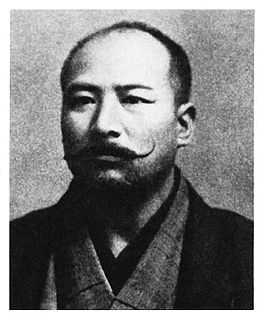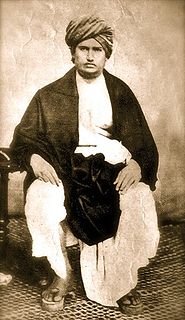A Quote by Alfred Adler
The educator must believe in the potential power of his pupil, and he must employ all his art in seeking to bring his pupil to experience this power.
Related Quotes
The Judo pupil, therefore, must cultivate his mind; he must never feel fear, never lose his temper, never be off his guard; but he must be cool and calm, though not absent-minded; he must act as quick as thought, according to circumstances. He must also be dexterous as well as bold both in attack and in defense.
Often nothing keeps the pupil on the move but his faith in his teacher, whose mastery is now beginning to dawn on him .... How far the pupil will go is not the concern of the teacher and master. Hardly has he shown him the right way when he must let him go on alone. There is only one thing more he can do to help him endure his loneliness: he turns him away from himself, from the Master, by exhorting him to go further than he himself has done, and to "climb on the shoulders of his teacher."
Let our pupil be taught that he does not belong to himself, but that he is public property ... He must be taught to amass wealth, but it must be only to increase his power of contributing to the wants and demands of the state... [Education] can be done effectually only by the interference and aid of the Legislature.
An actor must interpret life, and in order to do so must be willing to accept all the experiences life has to offer. In fact, he must seek out more of life than life puts at his feet. In the short span of his lifetime, an actor must learn all there is to know, experience all there is to experience, or approach that state as closely as possible. He must be superhuman in his efforts to store away in the core of his subconscious everything that he might be called upon to use in the expression of his art.
A tutor should not be continually thundering instruction into the ears of his pupil, as if he were pouring it through a funnel, but, after having put the lad, like a young horse, on a trot, before him, to observe his paces, and see what he is able to perform, should, according to the extent of his capacity, induce him to taste, to distinguish, and to find out things for himself; sometimes opening the way, at other times leaving it for him to open; and by abating or increasing his own pace, accommodate his precepts to the capacity of his pupil.
The man who is an initiate of one of the great Mystery Schools never fears to let his pupils outdistance him, because he knows that it stands him in good stead with his superiors if he is constantly sending up to them aspirants who 'make good.' He therefore never tries to hold back a promising pupil, because he has no need to fear that pupil, if allowed to penetrate into the Mysteries, would spy out the nakedness of the land; he will rather bring back a report of its exceeding richness, and thereby confirm the statements of his teacher and spur his fellow pupils to yet greater eagerness.
But as Nature is the best guide, teaching must be the development of natural inclinations, for which purpose the teacher must watch his pupil and listen to him, not continually bawl words into his ears as if pouring water into a funnel. Good teaching will come from a mind well made rather than well filled.
The child begins life as a pleasure-seeking animal; his infantile personality is organized around his own appetites and his own body. In the course of his rearing the goal of exclusive pleasure seeking must be modified drastically, the fundamental urges must be subject to the dictates of conscience and society, urges must be capable of postponement and in some instances of renunciation completely.
You perceive now, my friends, what your general or abstract duty is as teachers. Although you have to generate in your pupils a large stock of ideas, any one of which may be inhibitory, yet you must also see to it that no habitual hesitancy or paralysis of the will ensues, and that the pupil still retains his power of vigorous action.
Man is a transitory being, and his designs must partake of the imperfections of their author. To confer duration is not always in our power. We must snatch the present moment, and employ it well, without too much solicitude for the future, and content ourselves with reflecting that our part is performed. He that waits for an opportunity to do much at once, may breathe out his life in idle wishes, and regret, in the last hour, his useless intentions and barren zeal.
I believe that one can and must hope for a sane society that furthers man's capacity to love his fellow men, to work and create, to develop his reason and his objectivity of a sense of himself that is based on the experience of his productive energy. I believe that one can and must hope for the collective regaining of a mental health that is characterized by the capacity to love and to create.



































